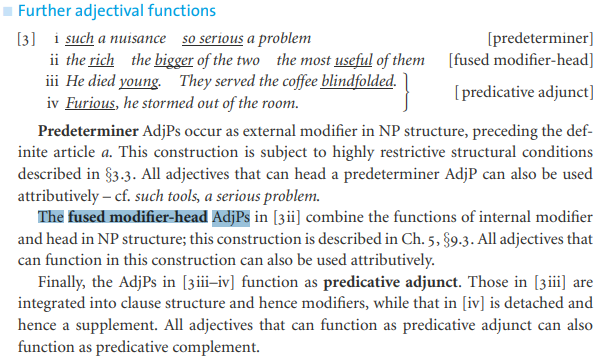the textbook "The Cambridge Grammar of the English Language", page 529:

from the passage above, I'm drawing the following conclusion:
(1) the rich
The adjective “rich” in (1) is a fused modifier-head AdjP.
the textbook "The Cambridge Grammar of the English Language", pages 518-519:
(2) Peter the Great
“The Great” in (2) is a fused modifier-head NP.
I'm combining the information from (1) and (2) and getting:
(1) the rich
The adjective “rich” is a fused modifier-head AdjP.
“The rich” is a fused modifier-head NP. — Is this correct?
(2) Peter the Great
The adjective “Great” is a fused modifier-head AdjP. — Is this correct?
“The Great” is a fused modifier-head NP.
Update:
I'm asking it because I've seen the term "fused modifier-head AdjP" for the first time and I want to know whether I've understood it correctly or not.
